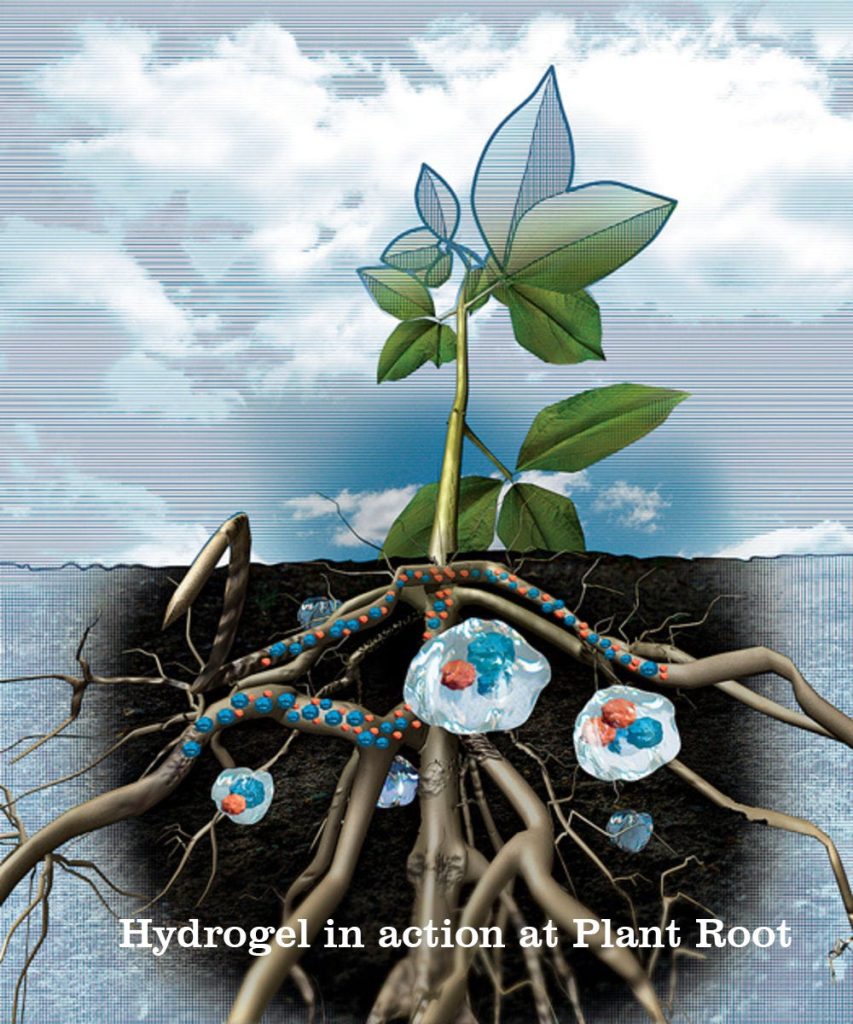Die Biologische Abbaubarkeit des Hydrogels Polymere ist aufgrund ihrer Empfindlichkeit und ihrer potenziellen Absorption in Pflanzengeweben bemerkenswert. Wenn sie natürlicher UV-Strahlung ausgesetzt sind, können Hydrogele leicht abgebaut werden.
Insbesondere Polyacrylat-Hydrogele sind sehr anfällig für aerobe und anaerobe Bodenmikroorganismen, die sie in Wasser, Kohlendioxid und Stickstoffverbindungen zerlegen.

Der biologische Abbau, der durch Organismen wie Pilze gefördert wird, trägt wesentlich zur Mineralisierung von Hydrogelen bei. Dieser Prozess des biologischen Abbaus zeigt eine hohe Wirksamkeit, insbesondere unter Bedingungen, die die Löslichkeit fördern.
Beispielsweise werden Hydrogele auf Acrylatbasis in kommunalem Kompost unter aeroben Bedingungen mit einer Geschwindigkeit von 1 bis 9% pro Jahr abgebaut, was der Zersetzungsgeschwindigkeit von organischem Material in Wäldern ähnelt.
Kaliumpolyacrylat ist ein für Nutzpflanzen geeignetes Hydrogel. Es hat eine sehr deutliche Wirkung bei der Verbesserung der Bodenstruktur und der Kontrolle der langsamen Freisetzung von Wasser und Dünger. Es kann 75% an Bodenwasser einsparen und die Ernteerträge um 35% erhöhen. Kaliumpolyacrylat zersetzt sich Schließlich kann es die für das Pflanzenwachstum erforderlichen Kaliumionen liefern. Um mehr über seine Anwendungen zu erfahren, denken Sie bitte daran, mir eine Nachricht zu hinterlassen!

